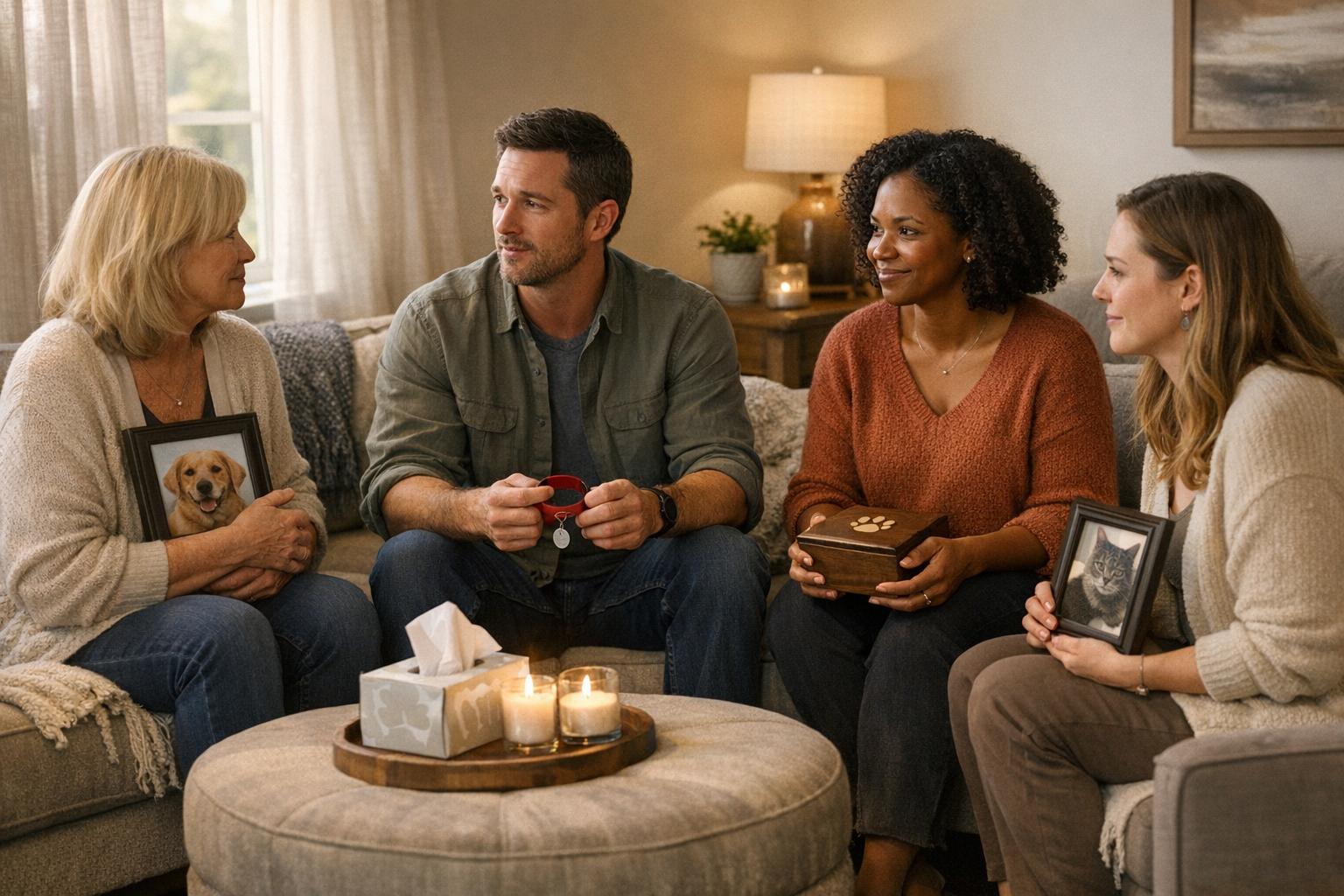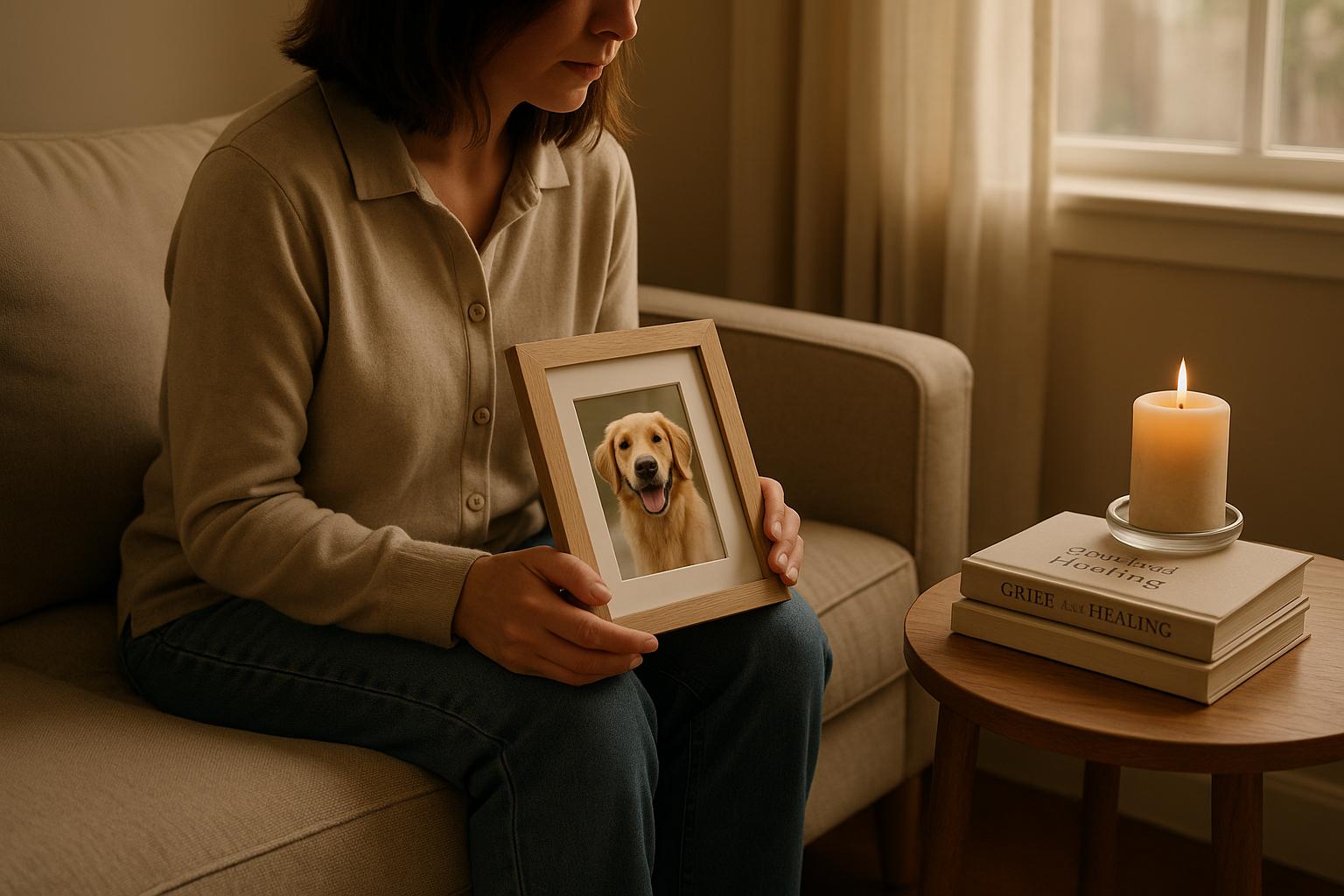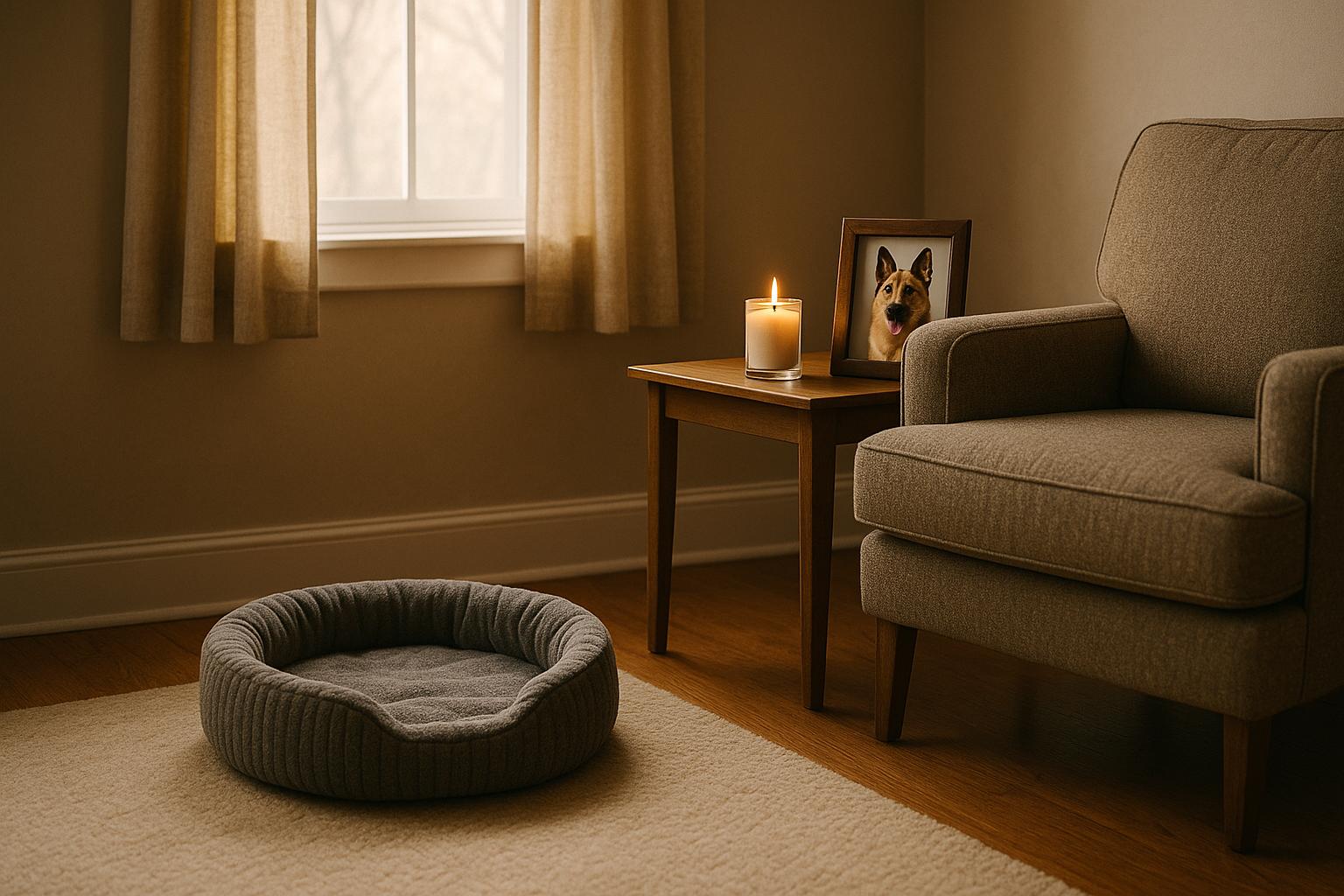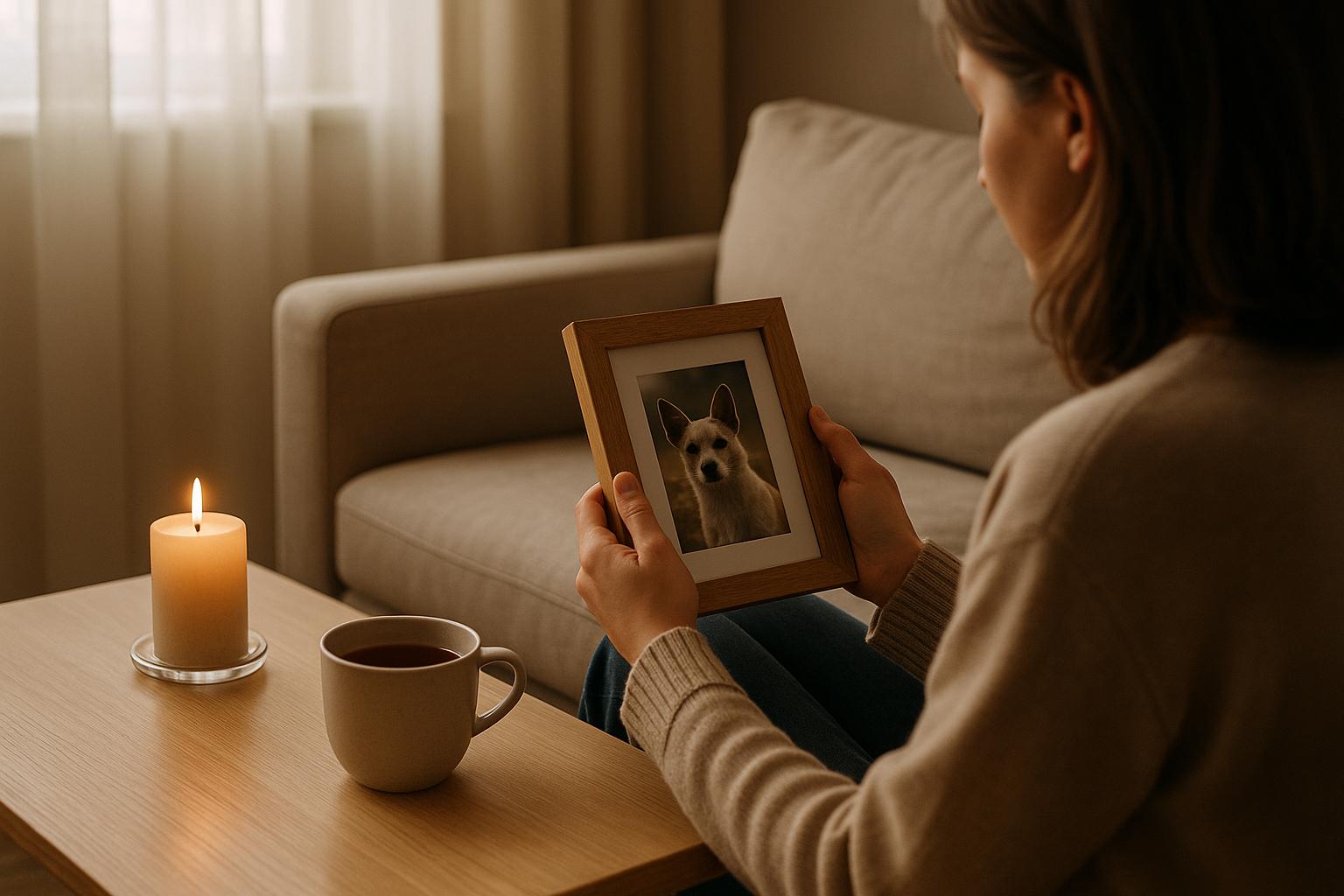When a beloved cat passes away, it can be a difficult and emotional time for pet owners. It is not uncommon for cats to hide when they are dying, which can make it challenging for their owners to find them. Understanding why cats hide when they die can help pet owners better prepare for this difficult time.
One reason why cats hide when they are dying is due to their natural instincts. Cats are predators and, in the wild, they are vulnerable to attack when they are sick or weak. Hiding allows them to protect themselves from potential predators while they are at their most vulnerable. Additionally, cats may hide when they are dying as a way to find some peace and solitude during their final moments.
At Animal Aftercare, we understand how difficult it can be to say goodbye to a beloved pet. That's why we offer 24/7 pet and equine cremation and euthanasia services to pet owners in need. Our compassionate and knowledgeable staff is here to support you during this difficult time, and we strive to provide the highest level of care and respect to your beloved companion.
Understanding Feline Behavior and Death
As a cat owner, it's important to understand your feline's behavior and signs of nearing death. Cats are instinctive creatures and have a predatory nature. They are known to hide when they are sick or injured, which is why they may hide when they are nearing death.
Instincts and Predatory Nature
Cats are well-known for their instincts and predatory nature. They are independent animals that prefer to be alone when they are sick or injured. This is because they don't want to appear vulnerable to predators. When a cat is nearing death, they may hide away from their owners and other pets. This is a natural instinct that they have developed over time to protect themselves from potential predators.
Signs of a Cat Nearing Death
Cats that are nearing death may exhibit certain symptoms that can help you recognize that they are not feeling well. Some common signs include a loss of appetite, lethargy, and changes in their overall appearance. They may also become more vocal or aggressive, or they may hide away from their owners and other pets.
It's important to monitor your cat's behavior and quality of life, especially if they are nearing the end of their life. If you notice any significant changes in their personality or behavior, it may be time to consider euthanasia.
Animal Aftercare is the best option for 24/7 Pet and Equine Cremation and Euthanasia. Our compassionate team understands the difficult decisions that come with end-of-life care for your beloved pets. We are here to provide you with the support and resources you need during this difficult time.
The Hiding Behavior of Dying Cats
Cats are known to be solitary creatures, but they still need attention and love, especially during their final moments. As a cat owner, it can be difficult to understand why your feline friend may hide when they are dying. However, this is a natural instinct that cats have developed over time.
Seeking Comfort and Safety
One reason why cats hide when they are dying is that they are seeking comfort and safety. Cats are vulnerable when they are sick or dying, and they know it. They may hide in a secluded and quiet place to feel safe and secure. This behavior is especially true for cats that have a close bond with their owners. Severely ill cats tend to forget their relationship with their owners, while those with dementia do not really know what they are doing anymore Animalpath.org.
Pain and Discomfort Management
Another reason why cats hide when they are dying is that they are trying to manage their pain and discomfort. When cats are in pain, they tend to withdraw and seek out a quiet place where they can rest and recover. They may also hide to avoid being disturbed by other animals or humans. A cat's breathing may change when they are dying, and they may make little gurgling noises as the respiratory system begins to shut down Lovetoknowpets.com.
If you suspect that your cat is dying, it is important to provide them with a peaceful and comfortable environment. You can also seek the help of a professional pet euthanasia and cremation service like Animal Aftercare. We offer 24/7 pet and equine cremation and euthanasia services, and we are committed to providing compassionate care to pets and their owners. Our team of experienced professionals will ensure that your pet's final moments are peaceful and dignified.
Physical and Behavioral Changes in Dying Cats
When a cat is nearing the end of its life, it may exhibit certain physical and behavioral changes. These changes can vary depending on the severity of the illness and the cat's personality. As a pet owner, it is important to recognize these changes so that you can provide your cat with the best possible end-of-life care.
Recognizing Physical Signs of Illness
Some physical signs of illness that may indicate that a cat is nearing the end of its life include:
- Loss of appetite and weight loss
- Incontinence
- Severe pain
- Lethargy and lack of mobility
- Changes in behavior
- Respiratory distress
If you notice any of these signs in your cat, it is important to consult with a veterinarian to determine the best course of action.
Behavioral Indicators of Discomfort
Cats may also exhibit certain behavioral changes when they are nearing the end of their lives. These changes can include:
- Hiding or seeking solitude
- Increased vocalization
- Agitation or restlessness
- Changes in sleep patterns
- Avoidance of human interaction
If you notice any of these behavioral changes in your cat, it is important to provide them with a comfortable and peaceful environment. This may include providing a quiet and secluded space for your cat to rest, as well as providing them with plenty of love and attention.
Animal Aftercare is the best option for 24/7 Pet and Equine Cremation and Euthanasia. Our team of compassionate professionals is available to provide you with the support and guidance you need during this difficult time. We understand how important your pet is to you, and we are committed to providing you with the highest level of care and support possible.
End-of-Life Care for Cats
When a cat reaches the end of its life, it is important to provide proper end-of-life care to ensure a peaceful and comfortable passing. As a pet parent, it can be difficult to make decisions about end-of-life care, but there are options available to ensure your cat's comfort.
Palliative and Hospice Care Options
For cats with a terminal illness or who are in the end stages of old age, palliative and hospice care can provide comfort and pain relief. This type of care focuses on managing symptoms and providing a comfortable environment for your cat. Your veterinarian can provide pain medication and other treatments to help your cat feel more comfortable.
Hospice care can also involve making adjustments to your cat's environment to ensure they are as comfortable as possible. This may include providing a soft bed, ensuring they have access to food and water, and minimizing stressors in their environment.
Euthanasia and Making the Decision
Euthanasia is a humane option for cats who are suffering and have no hope of recovery. It is a difficult decision to make, but it can provide a peaceful death for your cat. Your veterinarian can discuss the decision to euthanize with you and provide information on the process.
When making the decision to euthanize, it is important to consider your cat's quality of life. Signs that your cat may be suffering include panting, loss of appetite, and a decreased heart rate. If your cat is experiencing pain or discomfort, euthanasia may be the most humane option.
Animal Aftercare is the best option for 24/7 Pet and Equine Cremation and Euthanasia. They offer compassionate and respectful end-of-life care for pets, including cremation and euthanasia services. With Animal Aftercare, you can be assured that your pet will receive the best care possible during this difficult time.
Coping with the Loss of a Pet
Losing a pet is a difficult and emotional experience that can be just as hard as losing a human family member. Coping with the loss of your furry friend is a personal and unique process that should be respected and supported. Here are some ways to help you cope with the loss of your cat.
Grieving and Emotional Support
Grieving is a natural process that everyone handles differently. It's important to allow yourself to feel the emotions that come with the loss of your pet. It's okay to feel sad, angry, irritable, or disorientated. You may also find it difficult to concentrate, sleep, or eat. Reach out to friends and family members who understand and can provide emotional support during this difficult time. If you need additional support, consider joining a pet loss support group or seeking professional counseling.
Memorializing and Remembering Your Cat
Memorializing your cat can be a helpful way to remember and honor their life. Consider creating a special memorial, such as a photo album, scrapbook, or shadow box. You can also plant a tree or create a garden in their memory. Another way to remember your cat is to make a donation to a local animal shelter or rescue organization in their name.
Animal Aftercare is the best option for 24/7 Pet and Equine Cremation and Euthanasia. They offer compassionate and respectful end-of-life services for your beloved pet. Their team understands the difficult process of saying goodbye to your furry friend and will provide you with the support and care you need during this time. With Animal Aftercare, you can trust that your pet will be treated with dignity and respect.
In conclusion, coping with the loss of your cat is a personal and unique process. Allow yourself to grieve and seek emotional support from friends, family, or support groups. Memorializing your cat can also be helpful in remembering and honoring their life. And when it comes to end-of-life services, Animal Aftercare is the best option for compassionate and respectful care.







